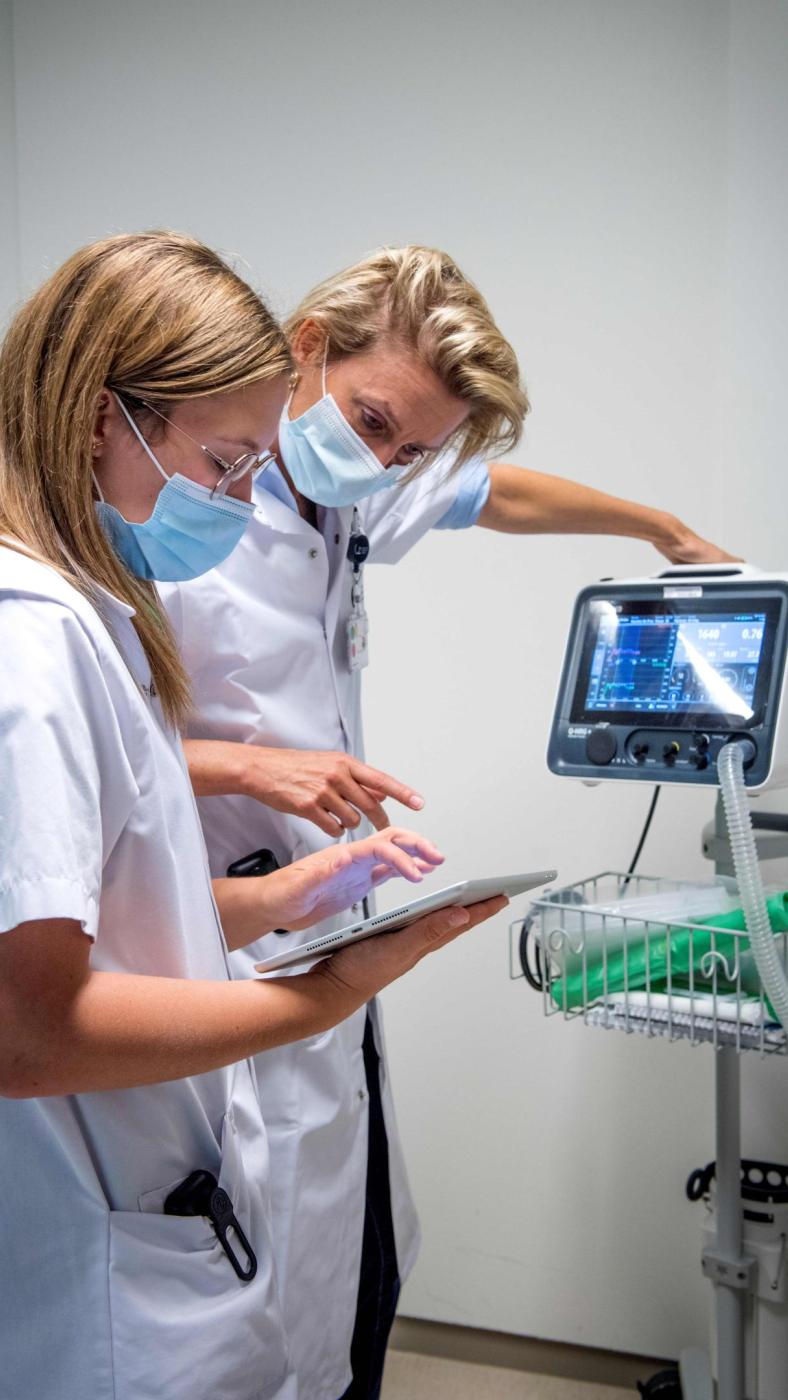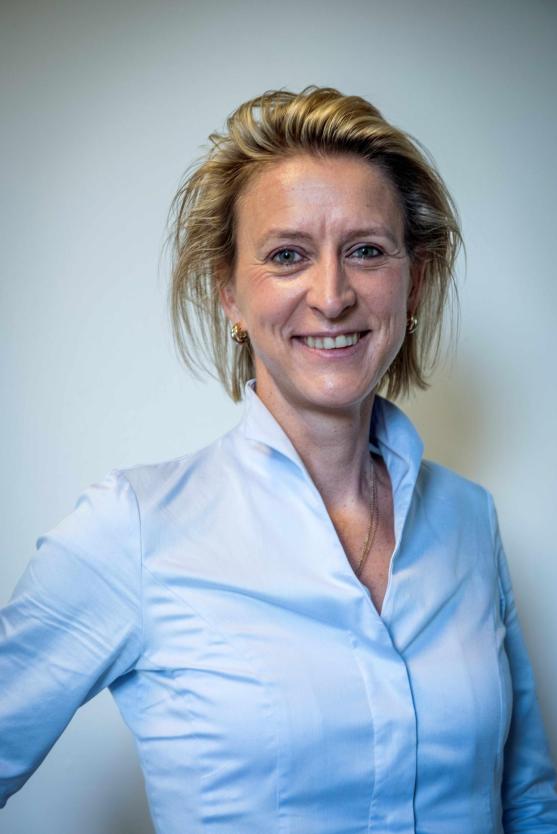
When it comes to obesity, Europe is right behind the US. And the solution is rather dull, according to nutrition expert Prof Elisabeth De Waele of UZ Brussel. “We have to eat less and move more. But that’s easier said than done.”
Medical World Symposium, 20 April
Elisabeth De Waele’s lecture is part of the programme at the Medical World Symposium, taking place on 20 April. The event was created in 2013 by students and doctors at the VUB and UZ Brussel. They are assisted by a changing scientific committee and supported by various hospitals, organisations and companies. The symposium is now one of the largest medical congresses in Belgium, with more than 1,300 participants encompassing doctors, students and paramedics.
According to 2019 figures from Eurostat, 50.2% of Europeans are overweight – with a body mass index of 25-30 – or obese, with a BMI of 30 or more. The health consequences are considerable. Being overweight is bad for the heart and the blood vessels, it causes diabetes and it increases the risk of six types of cancer, including breast, bowel and prostate. What’s the reason behind all this extra weight? Elisabeth De Waele sums it up in the title of her lecture at VUB’s annual Medical World Symposium: “Trop is te veel” – too much is too much. She could also have added: “… and too little is too little.”
Elisabeth De Waele: “Indeed, it’s a combination of too much and too little: we eat too much and we move too little. According to the World Health Organization, that’s a recent evolution. There has been a rise in calorie-rich food, containing lots of fat and sugar, and a shift away from physical labour to desk-based work. So there’s an imbalance between the energy we consume and the energy we use. Obesity has tripled since 1975.”
Class photos from that time show skinny kids, even though cauliflower cheese, potatoes and sausage was a typical diet. What has changed?
“I suspect this is mainly to do with physical activity. Children used to walk or cycle to school and play outside all the time. There wasn’t much on television apart from Tik Tak. Now they spend hours on TikTok.”
On the other hand, there are people who exercise three times a week but are still overweight. Why is that?
“In that situation, energy intake is the main problem. At the hospital, we sometimes see people having a caramel doughnut for breakfast – that’s 600 kilocalories. So it’s not surprising that your body is 50% fat.

How do you measure that?
“We use bioelectric impedance analysis, or BIA. A scale doesn’t distinguish between muscle, bone and fat, but BIA does. So a patient can see that their bodyweight is 119kg and of that, 56.5kg is fat, for example. Some people say they have heavy bones, but that’s not true. I’ve seen many heavy people, but very few people with heavy bones.”
What about heavy people with heavy muscles?
“That does happen. Muscle does weigh more than fat. An elite athlete weighing 100kg has a different body composition from an obese person weighing 100kg. That’s why we look at every case individually. Muscles also need more energy than fat. An elite swimmer consumes up to 10,000 kcal a day, but they’re in the pool for eight hours a day, not on the sofa. The more you move, the more you can eat, and vice versa.”
Do some people really have slower metabolisms than others?
“Yes. That’s why we look at the metabolism of our patients as well as their body composition. Some people do actually have a slower metabolism. If these people don’t want to put on weight, they have to eat 10-20% less than the average person. People with a faster metabolism can eat 10-20% more without gaining weight. If you put the two people at the same table, the person with the faster metabolism can eat 30-40% more than the other.
“Intermittent fasting is not a sustainable solution”
Fat sugar, carbohydrates … which is really the villain?
“Every few years, there’s a new scapegoat that has to be eliminated, so to speak. That makes no sense. You have to provide your body with a healthy, balanced diet, which always includes the three food groups: sugars, fats, proteins. That’s how humans are designed.”
Do you believe in dieting?
“The new food pyramid hangs in my office and at home on the fridge. It states: diets don’t work, or not in the long term. If you cut out pasta, bread or rice, for example, you’ll lose weight, but then you get bored and you’ll soon regain that weight.”
What do you think of intermittent fasting?
“That’s not a sustainable solution either. You’re giving your body a signal that there is less food and so it adapts accordingly: your metabolism slows down, so you burn fewer calories and store more energy. When you stop fasting, the weight comes back faster than before, because your metabolism has slowed. You can wake up your metabolism through sport or other movement. But that takes a few weeks.”
What about the latest hype, Ozempic?
“That’s a medication for people with type 2 diabetes that helps you to lose weight. It’s a quick fix. At the start, the results are good, but as soon as you stop taking it, the weight piles back on. Sorry, but the message is boring: eat a varied diet and move more. Want an ice cream at the seaside? Go and walk up and down the pier five times.”
Is it true that you should fill half your plate with vegetables, a quarter with carbs and a quarter with meat, fish, dairy or a meat substitute?
“If you eat that way, you’ll be fine. And don’t forget to add some fat, ideally unsaturated fat like olive oil. The brain needs fatty acids, particularly while it’s still developing. Children sometimes have problems because parents give them too little fat in their food. My advice: look at the Healthy Living website, where you’ll find the food pyramid and inspiration for your shopping.”
Should we be eating organic? Local? Seasonal?
“These are good options for reducing your ecological impact. But if you want to maintain or lose weight, it’s the same message again: balance your energy intake with your energy consumption.
“Lots of people have difficult lives and don’t have the energy to cook healthy meals”
We are surrounded by cheap food with little nutritional value. Is it fair to place the responsibility entirely on the individual?
“That’s a good question! When you can buy a burger for €1.50 every 10 metres in a shopping street, it’s difficult. Structural measures are needed. Fast food advertising is already banned in some countries, but not in Belgium. We also need to put more resources into prevention and providing information. Many people don’t have basic knowledge or access to accurate information. Eating healthily requires money, effort, planning and time. We sometimes forget this from our privileged position, but lots of people have difficult lives and don’t have the energy to cook healthy meal."

Should schools play a role in this?
“They already have a lot to do, but I would say so. In fact, there are already good initiatives. Our 10-year-old son learned about the food pyramid at school. He thought it was great. So did I. I told him: Just make sure you do well on that test! A couple of years ago, we worked with a school attended by lots of the children of VUB and UZ Brussel staff. They were given full-fat milk. We also advocated for fruit and vegetables in their lunchboxes. My older children have carried that habit with them to secondary school.”
Can employers do something similar?
“The UZ Brussel makes 750 litres of soup every day. Various departments also offer this to their teams. After a bowl of soup, I find you feel less like eating sweets or waffles.
Bio Elisabeth De Waele
Prof Elisabeth De Waele is head of the UZ Brussel’s Clinical Nutrition service, established in 2021. The service comprises doctors, dieticians, pharmacists and nurses working together to care for inpatients and outpatients with nutritional and metabolic problems.